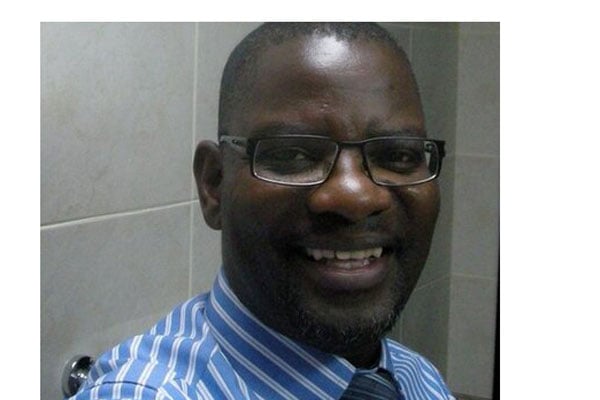Archbishop Lwanga’s death and how politicians stretch the truth

Author: Musaazi Namiti. PHOTO/FILE
What you need to know:
- Leading the campaign was NUP president and former presidential candidate Robert Kyagulanyi, aka Bobi Wine, the most prominent Catholic politician. (Vice President Edward Ssekandi is second to him.) Mr Kyagulanyi alluded to Archbishop Lwanga’s outspoken criticism of government’s excesses, suggesting it could have led to his death.
On Easter Eve, Ugandans woke up to the shocking and sad news of the sudden death of the Archbishop of Kampala Archdiocese, Dr Cyprian Kizito Lwanga. He died in his sleep from a heart attack and was 68.
A day before his death, on Good Friday, Archbishop Lwanga was seen in public performing his duties. But he was visibly frail, as photos circulating on social media indicated. That suggested all was not well with his health. Yet when news of his death broke, Opposition politicians — Prof Patrick Lumumba says the ones we have in Africa oppose everything and propose nothing — were already pointing the accusing finger at the government but without incontrovertible evidence of its culpability.
Leading the campaign was NUP president and former presidential candidate Robert Kyagulanyi, aka Bobi Wine, the most prominent Catholic politician. (Vice President Edward Ssekandi is second to him.) Mr Kyagulanyi alluded to Archbishop Lwanga’s outspoken criticism of government’s excesses, suggesting it could have led to his death.
To the best of my recollection, no Opposition politician issued a statement saying that only a post-mortem would establish the cause of the Archbishop’s death and that Ugandans should wait patiently for what pathologists had to say.
Then, on Easter Monday, Dr Kizza Besigye, a former presidential candidate, like Mr Kyagulanyi, added insult to injury, firing off a fake Facebook post that strongly suggested that President Museveni and his government were responsible for the death of Archbishop Lwanga.
To be fair to Dr Besigye, he has since apologised to his supporters and explained that his sources “seem to have had incorrect information”.
Mr Kyagulanyi has since turned his attention to other matters and has not posted anything about what the post-mortem found, perhaps because it is not what he and other Opposition politicians wanted to hear.
His last post about the Archbishop’s death says: “Archbishop Lwanga joins several other eminent outspoken religious leaders who have recently died under very unclear circumstances.” But we know the circumstances are very clear.
There are valid reasons for opposing President Museveni. He overstayed his welcome as a leader. He is in power for power’s sake, and is only truly supported by peasants who do not know what a president should do. He wins elections and insists he is still popular but goes on to lock up Ugandans who did not vote for him. Ugandans have perfectly good reasons for clamouring for change, but the problem is that those who are opposing Mr Museveni and are trying to spearhead change seem to have a strong and glaring streak of Musevenism in them.
If Mr Museveni has lied to Ugandans, his opponents have lied, too. If Mr Museveni is dishonest, his opponents, together with their supporters, are dishonest, too.
There is any number of Ugandans in places such as Boston and London who have sharply criticised Mr Museveni for his lies, dishonesty and presiding over a corrupt government when they relied on lies to enter the US and Britain — and relied on lies to secure citizenship in those countries. Such hypocrisy!
But politicians can still do better. Let them criticise garbage leadership when they can demonstrate that they can usher in great leadership. Let them use their formal education and take a scientific approach to truth. There should always be evidence backing up what you tell your supporters or what you share with the public.
And if there is new evidence contradicting what you originally believed, change your position and do not hesitate to admit you were wrong. That is what educated, intelligent and honest people do.
Mr Namiti is a journalist and former
Al Jazeera digital editor in charge of the Africa desk
[email protected] @kazbuk




